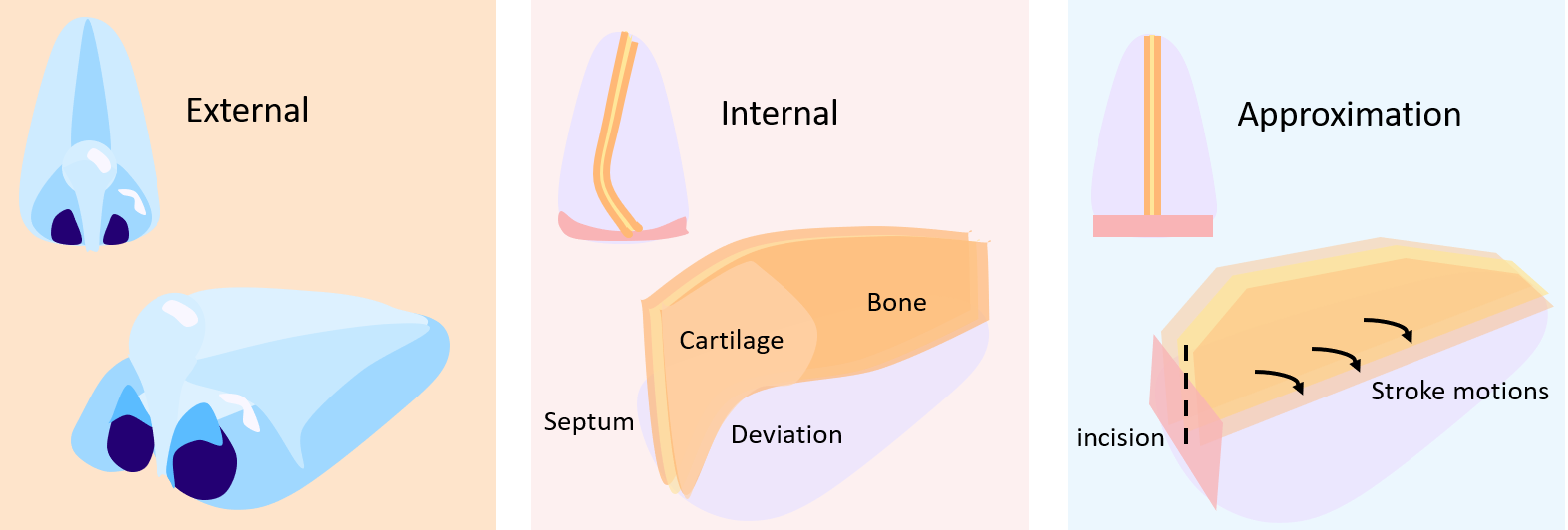
Aims: Develop and validate algorithms for objective assessment of intraoperative technical skill and competency in nasal septoplasty.
Summary: This project involves three core research directions. First, develop novel techniques to capture instrument motion data in nasal septoplasty. Second, to develop and validate algorithms based on machine learning and deep learning techniques to automate assessment of surgical technical skill and competency. Third, to determine the association between intraoperative technical skill and patient outcomes. To date, research in this project has led to multiple algorithms for technical skill assessment, evidence that technical complexity of procedures are associated with surgeons’ perception of surgical success, and techniques to model surgical anatomy using instrument motion data, among other discoveries. Ongoing work addresses the impact of surgical anatomy on complexity of the procedure and on intraoperative technical skill. This project relies upon surgical instrument motion data, structured surveys of surgeons, and CT images.
Funding: NIH R01 DE025265 (PI: Dr. Masaru Ishii) and NIH R21 DE022656 (PI: Dr. Masaru Ishii)
People: Masaru Ishii, S. Swaroop Vedula, Molly O’Brien, Anand Malpani, Narges Ahmidi, Lisa Ishii, Hajira Naz, Gregory D. Hager
Publications:
- Tseng YW, Vedula SS, Malpani A, Ahmidi N, Boahene KDO, Papel ID, Kontis TC, Maxwell J, Wanamaker JR, Byrne PJ, Malekzadeh S, Hager GD, Ishii LE, Ishii M. Association Between Surgical Trainee Daytime Sleepiness and Intraoperative Technical Skill When Performing Septoplasty. JAMA Facial Plast Surg [Internet]. 2018 Oct 11 [cited 2018 Nov 15]; Available from: http://jamanetwork.com/journals/jamafacialplasticsurgery/fullarticle/2705446
- Ahmidi N, Poddar P, Jones JD, Vedula SS, Ishii L, Hager GD, Ishii M. Automated objective surgical skill assessment in the operating room from unstructured tool motion in septoplasty. Int J CARS. 2015 Apr 17;1–11.